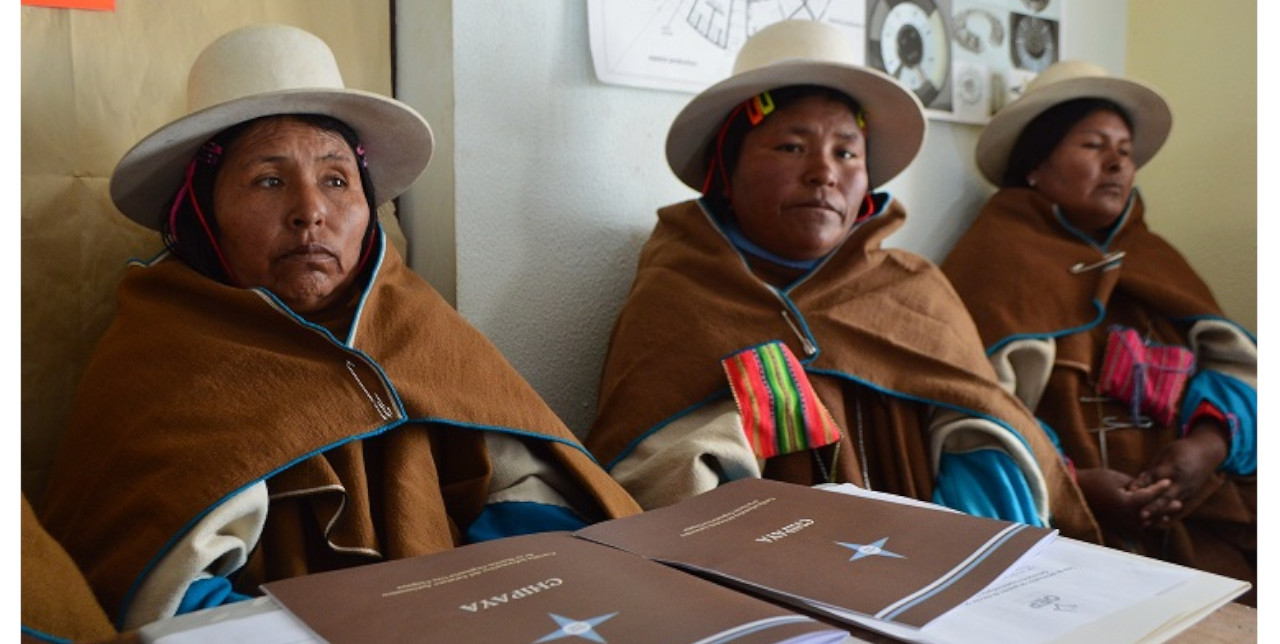15-04-2019 | di COOPI
Bolivia: a better future for the Uru-Chipaya young people
Chipaya is a village located in Bolivia, on the border with Chile. Here, lack of jobs, exposure to climate change and fragility of the local governments are some of the main reasons why so many young people migrate to other countries.
It is estimated that about 23% among young women and men of the Uru-Chipaya community leave the country temporarily every year to move to neighbouring states, particularly to Chile, to improve their living conditions.
In this context, we are promoting sustainable community economy and strengthening local governance, while respecting the priorities of local authorities and government policies, thanks to our "Chipaya: memories of water and wind. Towards new forms of community resilience" project in collaboration with the Italian Agency for Development Cooperation (AICS).
Local authorities do feel the need to implement these measures and intend to intervene to prevent young people from leaving Chipaya. In an interview for the daily newspaper "Cambio", Zacarías Huarachi, the new executive authority, says he is concerned about the worsening of the situation: "Once the institutionality of the indigenous self-government is consolidated, we will invest in research to find fresh water more easily, generate sources of employment in the agricultural and livestock sectors and promote educational, cultural and recreational activities for young people, aiming to prevent them from migrating to other countries".
As Roberto Cavallini, COOPI Country Coordinator in Bolivia, says: "Young people are a key player in the empowerment process of the Uru-Chipaya community - their involvement would prevent them from leaving the country and from losing their indigenous culture".
The "Chipaya: memories of water and wind. Towards new forms of community resilience" project aims to collaborate with schools, involving students in workshops related to land management based on criteria of indigenous autonomy, which will allow them to participate in debates and be included in the decision-making process.
During the project, we encourage young people to use innovative expressive tools to recover and enhance traditional Chipaya cultural elements. Some of their artistic and artisanal productions will be sold as traditional handcrafts as part of the sustainable tourism offer.
Remembering one's origins does not mean be behind with the times. As Roberto Cavallini points out: "Young people are moving away from traditional culture, since they attracted by the world outside their community. Our project aims to show that it is possible to combine new cultural expressions with traditional Chipaya cultural elements".
This is why activities in schools are implemented by programs to strengthen informatic knowledge and are focused on Information and Communication Technologies (ICT), to invest in research, publication, culture and in the production of information material, including the creation of a digital encyclopedia on Chipaya (WikiChipaya).
COOPI has been operating in Bolivia since 1985, by carrying out projects in a multisectoral perspective focused on land management, environment, governance of public services, enhancement of cultural heritage and local economic development.




 Bolivia
Bolivia